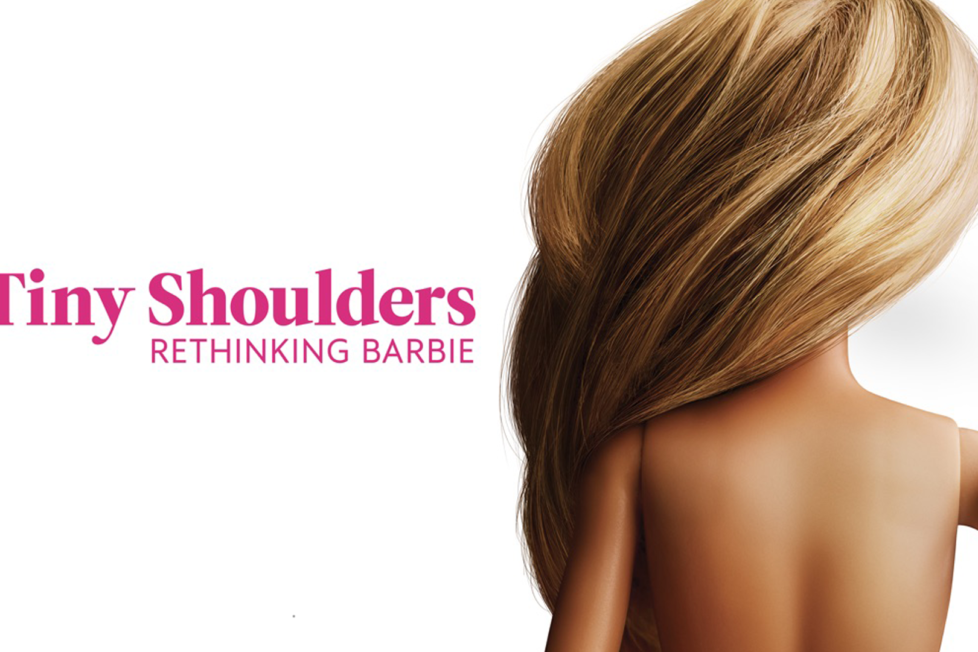‘Tiny Shoulders’ review: Is Barbie a problem or a powerhouse?
"Tiny Shoulders: Rethinking Barbie" revisits a question that has divided modern-day feminists.

"Tiny Shoulders: Rethinking Barbie" revisits a question that has divided modern-day feminists.

By Ciara Rouege
“Tiny Shoulders: Rethinking Barbie” (2018) revisits a question that has divided modern-day feminists: Is Barbie a powerhouse or a problem?
With a 98% brand recognition— that’s higher than the Queen of England or Queen Bey— Barbie transcends being a common toy and has come to represent polarizing thoughts about gender identity and inequality for women. Mainly, the faction of feminists who believe the doll enforces dangerous beauty standards that demote women to shallow, fashion-obsessed anorexic airheads competing for the white male gaze; versus their opponents who cherish Barbie as an ultra-feministic affront to the idea that women have to abandon traditional symbols of femininity in order to achieve socioeconomic equality with men.
And that’s a mouthful.
But truthfully, the conversation around Barbie is so complex with valid arguments on both sides. Personally, I think Barbie being a children’s toy that has had a profound impact on women for more than 60 years — for better or worse — is evidence she can’t be dismissed with simply “she teaches girls they have to be skinny, dumb and pretty to be accepted.” I could write an essay on this, but here’s the short version of my personal, politically correct opinion on Barbie: I fucking love this doll. #LeaveBarbieAlone
So, the documentary tries to address the increasing criticism Barbie and her designers have faced in recent years. It’s very much on the side of Mattel. In fact, it’s the designers and publicists who have the most presence in this film. The audience is brought in around 2016, when Mattel decided to make a bold move and introduce a new line that featured Barbie friends of different body-types. Different skin tones, heights, bodyweights, hair textures, capabilities— you name it. You remember plus-size Barbie, right? Tiny Shoulders plays it up as though the campaign was an all-around success, but admittedly it was met with a mixed reception. And Barbie sales continue to plummet every year so it wasn’t the revival the documentary tries to make it out to be.
I mean…you can Google it.
Mainstream liberal media has so successfully framed Barbie as a villain against women empowerment; I think this attempt to redeem her will just fall on death ears. Moreover, as a supporter of Barbie, there’s a problem at Mattel that is impossible to look pass in the documentary, and without explicitly saying it, the film confirms it: Mattel doesn’t actually value inclusion.
For about an hour, you watch a group of middle- to upper-class white women for the most part discoursing amongst themselves — the leader nearly coming to tears— as they try to push through the burden of reimagining Barbie in a way that will resonate with the toy market’s increasingly diverse consumers.
It relies a lot on the progressive mindset of Barbie creator Beth Handler in defense, but she’s been out of the picture for decades now, so that was dumb.
It was refreshing to get a pro-Barbie, mostly objective critique of the doll, but you’re not missing out. It’s a good history lesson if you’re a casual fan of Barbie. I already knew this story, and admittedly, I felt a bit frustrated. There’s arguments protecting Barbie that could’ve been stronger and Mattel could’ve been more self-aware.
GRADE: B-
Where to watch it: Tiny Shoulders: Reimaging Barbie is available for streaming on Hulu.
